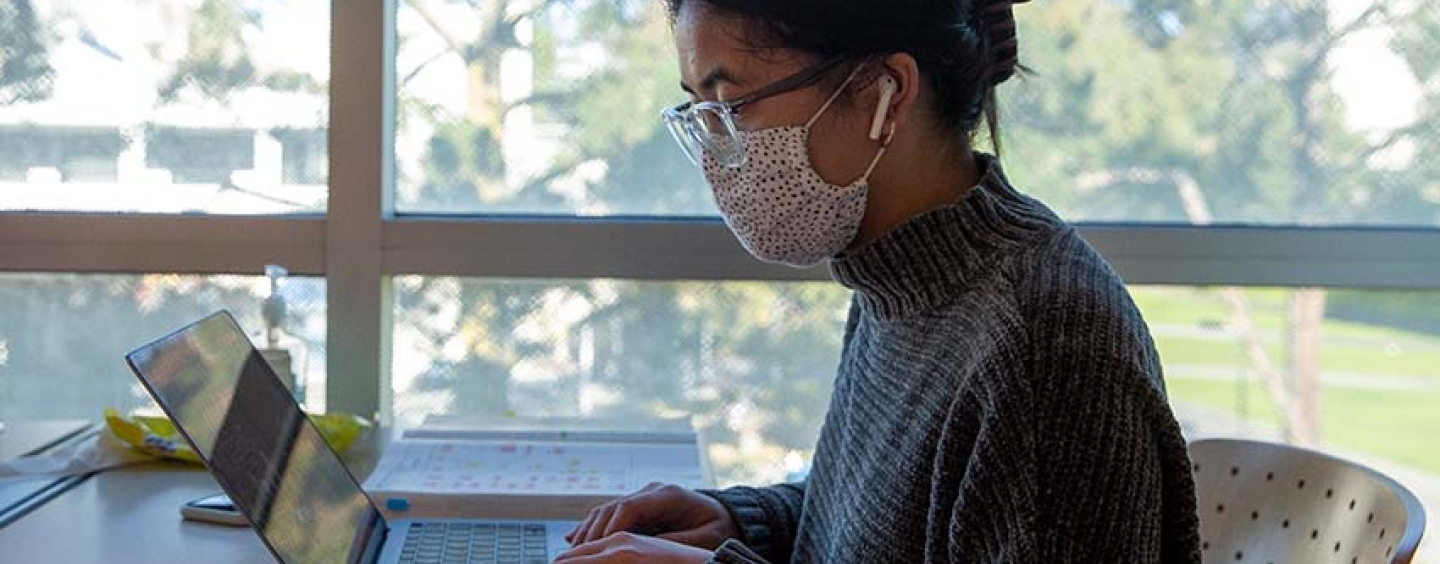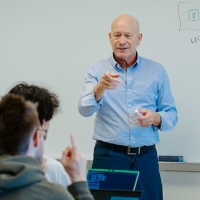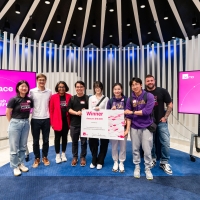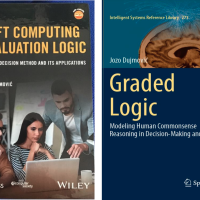Biotech Certificate Students get Insider Peek into Industry Jobs

The gSTAR program is only one year old, but the SF State-Genentech collab is already impacting students, faculty and industry
Want a job in biotech? The first step is to get into college and study science. But what’s the second step? Moving directly from the classroom to the workplace isn’t always easy, especially in a competitive field like biotech.
gSTAR student Phuong Phan
Enter San Francisco State University’s Data Science and Machine Learning for Biotechnology Certificate (gSTAR) program. Designed by San Francisco State faculty and Genentech scientists, the program is tailored specifically to University undergraduates interested in industry. It launched in the fall of 2021, and the first students are already reaping the benefits, with several earning Genentech internships.
“I think this internship is going to be a pretty wonderful opportunity for me to see if I fit into [scientific research] and to see if I can imagine myself doing it long term,” said fourth-year Cell and Molecular Biology student Phuong Phan.
She’s one of three gSTAR students who accepted an internship with Genentech’s research and development clinical imaging group, a position specifically tailored for gSTAR students. Not only will this be Phan’s first foray into biotech, it will be her first research opportunity ever.
When academia meets industry
The gSTAR program is part of a growing collaboration between SF State and Genentech to expand coding programs, particularly for students from historically marginalized groups. The yearlong program helps beginners learn data science and machine learning skills in the context of research and industry and provides in-depth interview preparation.
“My hope is that we can reach a lot of students, demystify machine learning and the biotech industry, and help students learn skills that open doors for them,” said Associate Professor of Biology Pleuni Pennings. She is one of the core SF State faculty behind gSTAR, along with Associate Professor Anagha Kulkarni and Professor Ilmi Yoon from Computer Science. The team — which developed SF State’s Promoting Inclusivity and Computing (PINC) program — worked with Genentech scientists to develop the new curriculum.
“There seemed to be an unending pool of [Genentech] people who were interested to help out,” said Pennings, who was sometimes surprised to find herself in Zoom meetings with a dozen eager Genentech collaborators. Industry scientists provided real-world datasets and papers, recommended industry-relevant software and even helped Pennings with nitty-gritty details. Once the course started, they presented in classes, provided students with advice, participated in mock interviews and more.
“I love my job but [gSTAR] is one of the best parts of my week,” said Spencer James, a principal data scientist at Genentech who, among other things, helped organize and run mock interviews in Kulkarni’s gSTAR class this semester. He admits that he himself did not gain a lot of this interview experience until his fellowship after undergrad.
“Maybe I can do this, too”
The first cohort to finish the yearlong gSTAR program consisted of 14 students; 11 are also graduating from SF State. Of the nine females in the course, eight are people of color. Five students have accepted Genentech internships: three in the clinical imaging group and two in other groups.
gSTAR student Fayeeza Shaikh sharing her gSTAR/PINC project
“As a person who did not know what biotech was, to get interview prep and then finally get an internship, [gSTAR] was really eye opening for me …,” said sophomore Biology student Fayeeza Shaikh, who has lined up an internship with Genentech’s product quality and occupational toxicology group. “I’ve started building on my career because of this program.”
Shaikh and Phan, who both started out in the PINC program, had never interacted with industry scientists. But in gSTAR, scientists came directly to their class (via Zoom), giving students a chance to network and learn how these scientists navigated their own careers, with some even admitting their own bouts of imposter syndrome.
“When we hear that, it kind of reassures us that maybe I can do this, too,” said Phan. She originally started her degree in 2011 but left to serve in the Navy for eight years. She returned to SF State in 2019 because she was still interested in going to school for science.
We can change biotech
Working with University students like Shaikh and Phan has left James excited for the future of Genentech and the whole biotech industry. Though he doesn’t recruit for Genentech, he’s also now reflecting on his responsibilities as an interviewer.
“Going through this course helped me really think a lot about how to effectively conduct an interview … how to take students who have majored in different things, have different interests, different experiences and hopefully work with each candidate in a way that you really get at their passions and capabilities …,” he said.
Pennings is also excited by all they’ve accomplished but is aware that there’s more to do.
“If we can make these skills attainable for a large number of people, I think we can change [students’] lives,” she said. “If we can show other people how it’s done, we can change the world of biology and biotech.”
Tags


